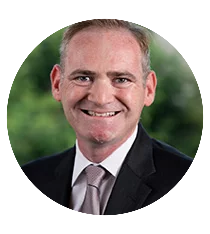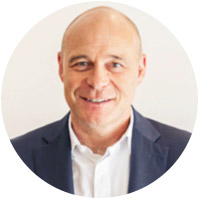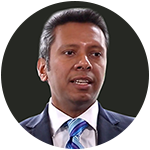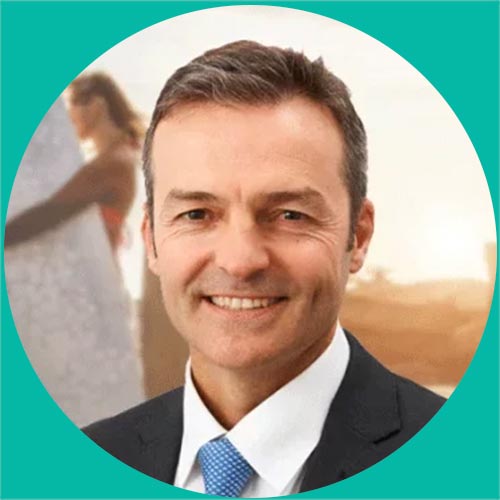7 tried and proven approaches to boost creativity
Creativity. You’ll need it to innovate, think divergently, solve problems and pivot when initial ideas fail to produce the results you want.
Creativity is a crucial business skill. The good news is creativity isn’t solely a talent possessed by artists, designers or musicians. You can learn how to be creative by changing the way you think and behave.
In this post, I’ll share 7 ways to boost creativity:
- Deliberately expose yourself to new experiences.
- Be a conscious consumer.
- Maximise everything.
- Cultivate curiosity.
- Steal like an artist.
- Generate lots of bad ideas.
- Embrace constraints.
As we go, I’ll add some examples of how these exercises can produce results in a healthcare marketing setting.
1. Boost creativity by deliberately exposing yourself to new experiences

Eating the same food, travelling the same route to work, consuming the same media and hanging out with the same people all the time will starve you of the variety of experiences you need to feed your creative juices. Next time, side-step your habits and do something unusual.
For example, last year I started working with a personal trainer. Effective personal trainers are great at client adherence – getting their clients to stick to programs in the long-term. One of the tactics he employed with me was to get me to text him my scale weight every day, which he’d log in a spreadsheet. Monitoring my daily weight achieved three outcomes that influenced my adherence:
- I became aware of one of my body’s key performance indicators (which created a productive daily adherence habit)
- I linked my behaviour (eating and training habits) with my desired outcomes (losing weight) which made me aware of cause and effect
- I saw my weight drop on a daily and weekly basis (which motivated me to continue)
It didn’t take me long to see how a similar approach would help my customers. If I could ask them to log their inquiries, consultations and treatment bookings on a daily or weekly basis, they would also become more productive, aware and motivated too.
These new routines proved essential in achieving the results I sought. However, I wouldn’t have considered them in my work without breaking my unproductive, ignorant habits that failed to motivate change.
More recently, I did my first headstand in a yoga class. When I did it, and I felt that triumphant moment, I thought to myself (almost immediately), “wow, people love a guide who can help them achieve something so quickly that they didn’t imagine or expect to achieve at that moment.” Then, I thought, “what can we help our clients immediately achieve to get that same reaction – of unexpected triumph? How can we create a small win?”
I’ve not yet come up with the answer but asking the question itself is inspiring for a creative solution.
Can you think of how you can create an opportunity for a small win in a clinical setting? Your patients will love it, and the hope you help them capture will lead to more conversions and adherence.
An effective way to experience something new is to unplug from the ubiquitous tech we depend on every minute of every day. Cate, our project manager, shares her preferred application of this approach:
For me fresh air always helps – getting out, taking a stroll, seeing things other than a desk. I find it especially helpful not having my phone with me so that I can really take in my environment and get ideas from what I see.
2. Be a conscious consumer

Whenever you’re engaging with any business as a customer, ask yourself:
- What’s the story they’re selling?
- Who is the ideal customer they are trying to attract?
- How do I differ from that?
- How do I fit?
- What stage of the sales funnel am I in (top, middle or bottom)?”
- In what phase of the customer value journey am I?
- What is the company doing to get me more aware, engaged, subscribed, converted, excited, and ascended to the next sale?
One company that’s inspired me recently is DigitalMarketer. They offer paid access to a Facebook Group where thousands of digital marketers can interact, ask each other for help, learn from each other and share successes. After six months of membership, I’ve gained powerful insights that have helped me be a better digital marketer.
Recently, I thought: “Wouldn’t it be useful if clinics created groups (on Facebook or elsewhere) where prospective patients could interact with existing patients and get similar benefits?” I have yet to find a client to take me up on this idea, but the one who does will have a winner on their hands.
Hundreds if not thousands of messages impact you every day. Consume consciously, and you’ll be on the way to picking up valuable ideas and lessons from your daily interactions with companies.
3. Maximise everything

When you see robust marketing communications or experience superior customer service, ask yourself – how would I make this even better? How could I make this even more customer-oriented?
For example:
- I love Ocado delivery, but it’d be even better if they texted me 10 minutes before a delivery arrives so I could start making space in the fridge.
- I love Constancia Argentine Grille, but it’d be even better if they listed calorie counts and macros on their menus so that I could track if what I ate there was inside my calorie goals.
- I love the look and feel of Third Space, my gym, but it’d be even better if they had an app where I could book classes a week in advance.
- Nele, one of our marketing specialists, contributed this idea: “I like the features of online banking (quick, easy, etc.), but I’d find it nice if I could set up a notification when there’s, for example, less than £500 (or whatever sum) on my bank account. Or if they’d send me a notification after I’ve spent more than a specific sum.”
Opportunities to improve products and services are everywhere. Thinking this way can help you maximise yours.
(NOTE: Want to see how your practice marketing measures up against the best in class? Take this 5-minute quiz to see how you stack up in the 9 areas of practice marketing and get specific tips and advice on how you can improve your weak points and better leverage your strengths).
4. Cultivate your curiosity

Many of us have been trained to believe that asking questions is a sign of ignorance or incompetence. So, we go about most of our days pretending that we know more than we know instead of asking the questions that would bring us the insights we need to progress.
Never apologise for asking a question! The only dumb question is the question that you never asked.
I’m going to let you in on a secret: Leaders ask questions. Questioning is what leads to progress.
Do you think Orville and Wilbur Wright would have invented an aeroplane if they hadn’t at one point or another asked themselves “I wonder if we could fly in the sky?” Do you think computers would exist if someone hadn’t wondered “Could we get a machine to do that boring calculation?”
Questions don’t show you’re ignorant; they show you’re curious. And curiosity is a prerequisite to boost creativity.
Whenever, you see something you do not fully understand – ask a question. Life is too short to walk around being confused. You often have only one chance to ask someone a question that could lead you to an understanding you never had before. That insight could change the course of your entire business and life.
5. Steal like an artist

Copy (and add) to existing ideas. You don’t need to reinvent the wheel or be the first person in the world to come up with an original plan. The most creative people also tend to be excellent copiers.
The famous composer Igor Stravinsky supposedly said: “Immature artists copy, great artists steal.” Steve Jobs put it more simply: “Good artists copy, great artists steal.”
That doesn’t mean to plagiarise. Instead, find inspiration in the work of others, then use it as a starting point for original creative output. Hat tip to Austin Kleon for his excellent book on stealing like an artist where he urges us to recontextualise, remix, substitute and mash up ideas to wind up with something “new”.
When faced with a creative challenge, co-opt an idea and adapt it to suit a new context, fix a similar problem in a different industry, or communicate the benefits of something all-together different, but in a similar way. You can even cite the source of your inspiration which often gives more credibility to the validity of your new idea.
What great ideas already exist that you could apply to a marketing problem in your clinic or hospital?
6. Generate lots of bad ideas

Self-censorship is the thief of creativity. Don’t reject your ideas – even the crappy ones – too early. Just get them out (write them down, speak them out) and only evaluate them on their merits once you’ve spent all of your creative juices.
Then, and only then, evaluate your ideas for their commercial applicability and practicality.
Thomas Edison said about his experience inventing the lightbulb: “I have not failed. I’ve just found 10,000 ways that won’t work.”
But even after developing an idea over 10,000 attempts may not be enough. You’ve then got to push them out into the world to see if they’ll stick somewhere.
Legend has it that Walt Disney was turned down 302 times before finally getting financing for his dream of creating Walt Disney World. Buyers rejected KFC founder Colonel Sanders 1009 times before he found a taker for his chicken recipe.
These “bad ideas” were ideas before their time.
Your bad ideas may not work this time, or in this particular context, but saving them up in an idea bank you can refer to later will make them available for when they might be brilliant ideas. And even if they’re not brilliant ideas, as marketer Seth Godin reminds us, it’s the “emotional labour” itself that is most valuable in today’s economy. Today’s bad idea will spawn the course correction (and resilience required) to pivot you toward tomorrow’s breakthrough.
7. Embrace constraints

Many people think that limitations work against them when they’re trying to be creative. It may seem counterintuitive, but restrictions can often boost creativity.
For many creators, the hardest thing in the world is addressing a blank page. We’ve all been there – paralysed at the very start of a project with the burden of infinite freedom.
Sometimes, the very best ideas arise from the most restrictive situations. Some go as far as to say that constraints are a necessary condition for creativity to occur.
How can you make the bland, shine? How can you weave your way through a tight regulatory environment? How can you make the boring, sexy? How can you get attention with no money? How can you stand out in a sea of established competitors? How can you make a commodity feel like an experience?
The answer is always – always – to get creative.
Here’s Cate again, commenting on how she applies this approach:
I love checking out other businesses. Although they might have bigger budgets, they often have good ideas that can be implemented in a similar and less expensive way. This is usually even more fun, because you have to think about ways to change things up to make them more affordable; you might – in the end – even come up with a better version.
When faced with limited options, you’ve got to think your way out of a little box – and therein lies the breakthrough.
I believe that thinking creatively is a skill you can learn. Practice these approaches to boost creativity and you’ll be brainstorming fresh ideas for your practice and solving tough problems in ways you never imagined. Good luck!
(NOTE: Want to see how your practice marketing measures up against the best in class? Take this 5-minute quiz to see how you stack up in the 9 areas of practice marketing and get specific tips and advice on how you can improve your weak points and better leverage your strengths).
About the author
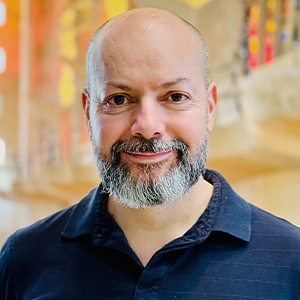
Rod Solar
Founder & Scalable Business Advisor / fCMO
Rod Solar is a co-founder of LiveseySolar and a Scalable Business Advisor for its customers. Rod mentors and coaches eye surgery business CEOs/Founders and their leadership teams to triple their sales, double their profit, and achieve their “ideal exit”.
Related Posts
Meet our Co-Founders
We’re passionate about helping leaders of high-quality, growth-minded practice owners double their practice revenue

Rod Solar
Founder & Scalable Business Advisor
For over 20 years, I’ve helped ophthalmology entrepreneurs scale their private practices. I specialise in doubling revenue within three years by offering a proven framework, hands-on experience, and a team of experts who implement what works. We take the guesswork out of growth and scale, so you can focus on delivering exceptional patient care while maximising the value of your business.
LiveseySolar completely transformed the way we were approaching this… We’ve gone from having just the dream of having a practice to having a practice up and running with people making inquiries and booking for procedures… It’s extremely pleasing. We feel lucky we connected with LiveseySolar.
— Dr Matthew Russell, MBChB, FRANZCO, specialist ophthalmic surgeon and founder of VSON and OKKO

Laura Livesey
Founder & CEO
I’m the co-founder & CEO of LiveseySolar. I’ve developed powerful eye surgery marketing systems that increase patient volumes and profits for doctors, clinics, and hospitals, since 1997.
Rod and Laura know as much about marketing surgery to patients as I know about performing it. They are an expert in the field of laser eye surgery marketing. They know this industry inside out. I believe that they could help many companies in a variety of areas including marketing materials, sales training and marketing support for doctors.
— Prof. Dan Reinstein, MD MA FRSC DABO, founder of the London Vision Clinic, UK


